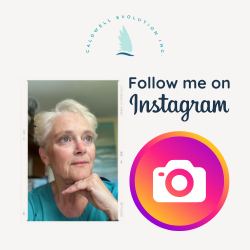Nov. 8, 2020
The Gratitude Diaries, Janice Kaplan
2015, Dutton
Kaplan wrote her “year in the life” account after a particularly miserable New Year’s Eve, and New Year’s Day, experience that left her questioning her attitude towards life. Her resolution to be more grateful for life expanded to a year of practice, experiment and research on the value and impact of gratitude.
I enjoyed this book so much that I bought a copy, after originally listening to an audio version, and I look forward to reading it again. Kaplan is a journalist by training and trade and brings her journalism skills to her work. She has divided the book into four seasons and attached aspects of our lives, for which we can be grateful, to each season. Winter includes the impact of gratitude on Marriage, Love and Family. Spring is Money, Career and The Stuff We Own. Summer includes Gratitude and Health and, finally, Autumn is Coping, Caring and Connecting.
As a journalist, Kaplan brings a commitment to research to her book. This was, in fact, the reason I ended up buying a copy. Given my work, I was particularly interested in the impact of gratitude on The Stuff We Own. Kaplan appears to have a fascinating, never-ending resource of friends, colleagues and professional connections that contribute to her research on the impact of gratitude. If for no other reason, the richness these interviews bring to Kaplan’s story makes it worthy of the read.
Needless to say, I highly recommend this book. It’s uplifting, informative and fun. It’s not hard to read. And, by the way, it’s equally easy to listen to in the audio version.
Nov. 15, 2020
The Gratitude Prescription, Will Pye
2019, Reveal Press
Pye’s autobiography outlines his use of gratitude to manage the symptoms, side effects and treatment of a brain tumour. He calls his unique approach “radical gratitude,” or thankfulness and appreciation for everything, without preference. Using radical gratitude, the author was able to overcome the symptoms, fears and concerns associated with his brain tumour.
I found this book difficult to read. It did not hold my attention very well as I found that his stories rambled. I also found myself forming opinions contrary to Pye’s, which made the book difficult to finish. While his style did not engage my interest, the book still provides a good resource for meditation, affirmations and gratitude exercises.
Nov. 23, 2020
A Simple Act of Gratitude, John Kralik
2011, Hachette Books
Originally published as 365 Thank Yous, Kralik’s book is the story of a year in which he committed to writing a daily personal thank you note. He made this commitment on New Year’s Day, while walking in the mountains above his town of Pasadena. After experiencing a particularly dismal previous year, and feeling significant despondence (enough that a dear friend was checking up on him), Kralik remembered that his grandfather had been devoted to writing thank you notes. He also remembered that he had never followed up on a particular commitment that his grandfather had asked of him, to write a thank you for a coin he had received. Thinking that it was one thing over which he had control, while the rest of his life felt out of control, Kralik committed to writing a letter every day of the year.
This was a wonderful story and a thoroughly enjoyable read.
I highly recommend this book. It is interesting, entertaining, and easy to read. I blasted through it, completely curious to find out how he ever managed to become a judge when his life, including his law career, appeared to be in ruins. Along the way, as I followed his journey, I was reminded of the power of the Thank You and intrigued by the even greater power of a written Thank You.
Nov. 29, 2020
Thanks a Thousand, A.J. Jacombs
2018, Simon & Schuster, (TEDBooks)
Who knew that a commitment to a cup of coffee could lead to writing a book about gratitude? I suppose that when one is an author/journalist by trade, training and vocation, making unusual connections is not uncommon. Jacombs’ book, originating from his TEDTalk, recounts his attempt to thank everyone who contributes to making his morning coffee available to him. Having found himself particularly cranky one morning while trying to get his cup of java, he realizes that perhaps a little more appreciation might help his mood. And so his journey, and his story, begins. Early on, Jacobs becomes aware of the magnitude of his project. With some help from his young son, he decides to stop at one thousand thank yous.
This gratitude journey covers some serious geographic territory. While following along, I developed an appreciation for the commitment of authors to the depth of their research. Without question, the book would not have been as powerful without the travel details. There is a richness of authenticity that, for example, a trip to a coffee bean farm in Colombia brings to the read.
This is another selection that I highly recommend. Like some of the other books in this gratitude group, it is easy, enjoyable, and entertaining. Frankly, I started the book with curiosity along the lines of “Really? A cup of coffee? This ought to be interesting.” And it was; really interesting and frankly informative. I have a brand-new appreciation for my morning cup of coffee in addition to the value of gratitude.


Leave a Reply